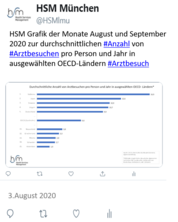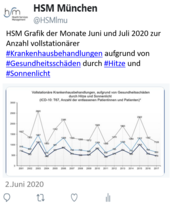Adipositas und Erfolg am Arbeitsmarkt
| Autoren/Herausgeber: |
Sundmacher, L. Morris, S. |
|---|---|
| Erschienen: | 2010 |
| Publikationsart: | Articles in Refereed Journals (National) |
| ISBN/ISSN: | 1432-2625 |
| erschienen in: | Gesundheitsökonomie und Qualitätsmanagement |
| Weitere Quellenangabe: | Volume 15, Pages 33-8 |
Abstract
AIM:
Evidence suggests that obese workers, and in particular obese females, on average earn lower wages than non-obese workers. The aim of this study is to examine the relationship between obesity, earnings and occupation selection.
METHODS:
We investigated directly the relationship between mean occupational earnings and obesity measures by regressing the former against the latter plus a range of individual and area covariates. We also used multinomial logistic regression and ordered probit regression to model the impact of obesity on occupation selection. The data for the analyses were taken from the 2003 Health Survey for England (HSE) and the Annual Survey of Hours and Earnings. Potential endogeneity of BMI was investigated using instrumental variables.
RESULTS:
For the mean occupation wage regression, we find that obesity has a negative and significant effect on occupational wages in females. For the occupation selection model, we find that obese men have an increased likelihood of working in higher paid occupations and lower paid occupations, while obese women have an increased likelihood of working in lower paid occupations only. In addition, obese women are significantly more likely to work in occupations which require a low skill.
CONCLUSION:
Our paper suggests that obese female workers attain lower occupational positions than their non-obese peers.





